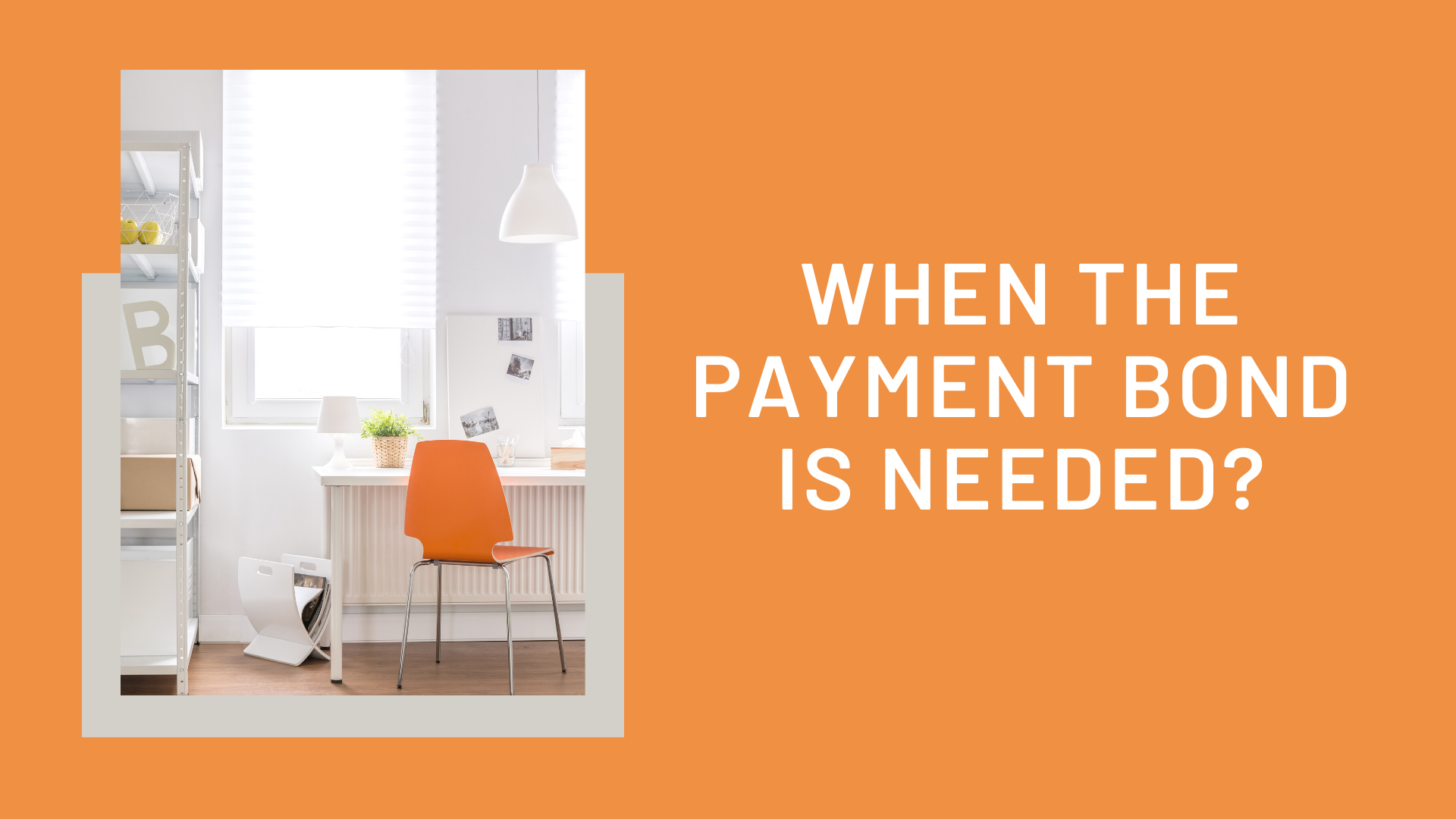When the payment bond is needed?
A payment bond is generally needed when a contractor wants to be reimbursed for payments made to subcontractors and suppliers. In some cases, a payment bond may also be needed to secure a loan. The specific circumstances that require a payment bond will vary depending on the project and the lender involved. Generally, however, a payment bond is not required when the contractor is working directly for the owner of the project.
The payment bond acts as a guarantee that the contractor will be able to pay its subcontractors, suppliers, and lenders. If the contractor fails to make these payments, the payment bond protects the parties involved by reimbursing them for their losses. This guarantee can be important for projects that involve a high degree of risk, such as construction projects.
It is important to note that a payment bond does not protect the owner of the project from any losses that may occur. The payment bond only guarantees the contractor’s ability to pay its subcontractors and suppliers. The owner of the project should still carefully review the contractor’s financial stability before entering into a contract.
When is a payment bond used?
A payment bond is a type of surety bond that is used to ensure that contractors or suppliers are paid for the work or products they provide. The bond is usually required by the party who is hiring the contractor or supplier and can be used to protect them from financial losses if the contractor or supplier fails to pay. Payment bonds are commonly used in the construction industry, but can also be used in other industries where contracts are common.
There are a few things to keep in mind when it comes to payment bonds. First, the bond must be issued by a bonding company that is licensed in the state where the work is taking place. Second, the bond amount will typically be based on the value of the contract. And lastly, the bond will be canceled once the contractor or supplier has been paid in full.
If you’re considering hiring a contractor or supplier, it’s important to ask for proof of a payment bond. This will help protect you from any potential financial losses if the contractor or supplier fails to pay. For more information on payment bonds, please contact your local bonding company. They can help answer any questions you may have about this type of bond.
When would you use a payment bond?
A payment bond is a type of surety bond that is used to ensure that a contractor will make payments for labor, materials, and other services associated with a construction project. The bond may also be used to ensure that the contractor will pay any subcontractors that they hire for the project.
Payment bonds are typically required by construction contracts that exceed a certain amount in value. They are also used in public works projects, such as road construction or water system repairs. Payment bonds are usually issued by insurance companies or bonding agencies.
There are a few reasons why you might want to use a payment bond. First, the bond can help protect your business from non-payment by the contractor. This is especially important if you are hiring subcontractors for the project. Second, the bond can help ensure that the project will be completed on time and within budget. Finally, using a payment bond can help you win more contracts, as it shows that you are a reliable contractor who honors their commitments.
When is a payment Bond Required?
A payment bond is often required when making a large payment to a vendor or contractor. The bond guarantees that the payment will be made in full and on time. Payment bonds are typically used in the construction industry, but can also be used in other industries where large payments are common.
There are a few different types of payment bonds, but the most common is the performance bond. This type of bond guarantees that the contractor will complete the project as agreed upon in the contract. If the contractor fails to meet their obligations, the payment bond can be used to cover any damages incurred.
It is important to note that not all contracts require a payment bond. You should always check with your supplier or contractor to see if a bond is required. If it is, you will need to provide the bond before the payment can be processed.
Who required payment bonds?
A payment bond is often a requirement for those working on public projects. The bond guarantees that workers will be paid for their labor. It can also protect the project owner in case the contractor fails to pay its subcontractors or employees. Payment bonds are usually required by state and federal governments, as well as large public entities like school districts. They are also common in the construction industry.
There are several types of payment bonds. The most common is the performance bond, which guarantees that the contractor will complete the project according to the terms of the contract. Another type is the payment bond, which guarantees that workers will be paid. There is also a materials bond, which guarantees that suppliers will be paid for materials used in the project.
